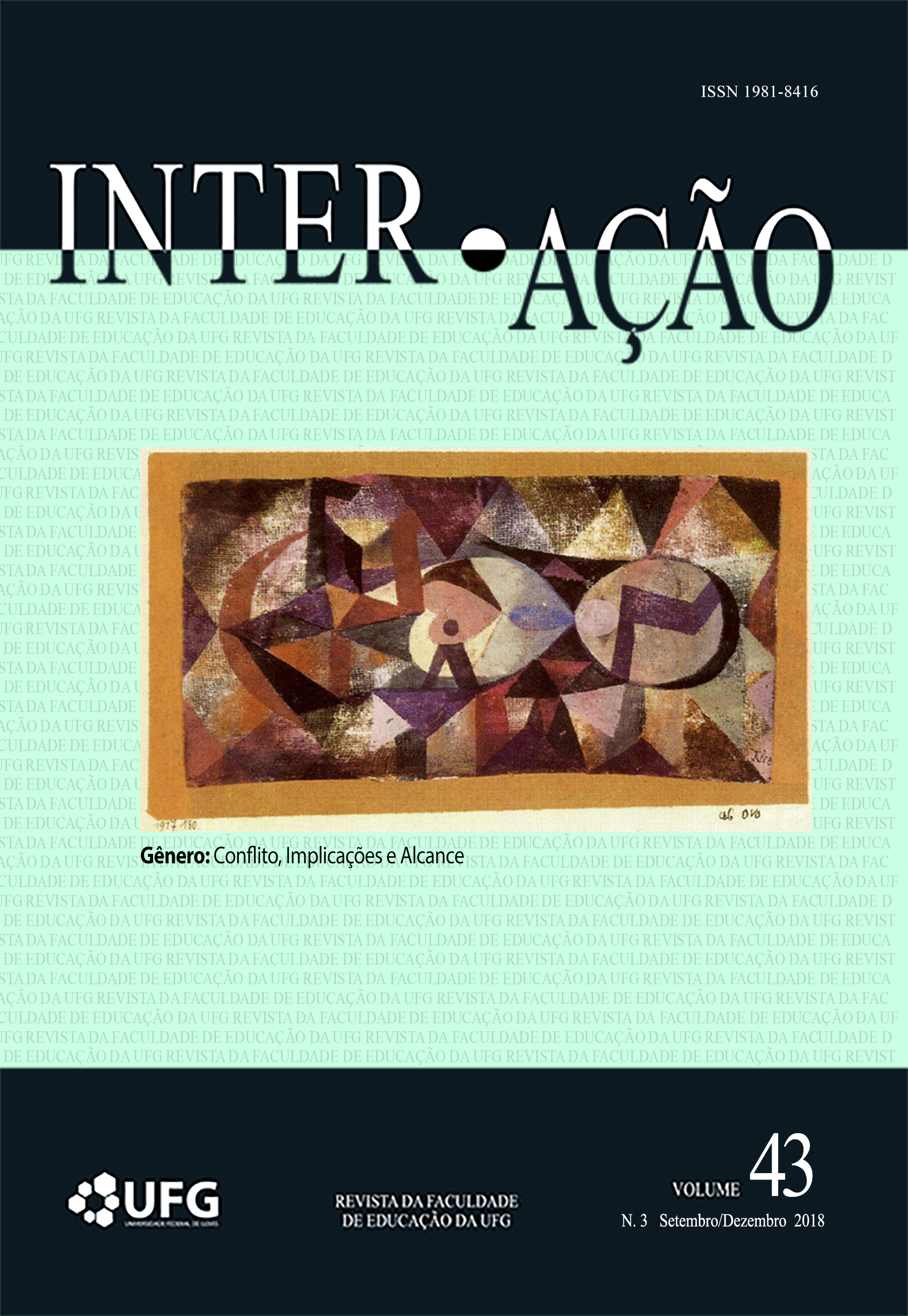Heteronormatividade e ensino na educação básica: um estado do conhecimento
DOI:
https://doi.org/10.5216/ia.v43i3.48967Abstract
Neste estudo descritivo e qualitativo, analisamos dezesseis trabalhos do Banco de teses e dissertações da CAPES acessíveis na Plataforma Sucupira que atendiam a temática da heteronormatividade na educação básica. No Brasil, concentra-se o maior número de crimes de homotransfobia do mundo. A superação desta realidade aponta para o respeito às diversidades de gênero, ainda frágeis nas práticas de ensino, principalmente - à luz de nossas reflexões - na educação infantil. Mesmo com a supressão dos temas transversais sobre diversidade sexual no currículo, acreditamos que retrocessos e avanços são inerentes à dinâmica das relações de ensino e aprendizado, tendo como resultado o inédito respeito e emancipação das diversidades de gênero.
Downloads
Published
Versions
- 2026-01-30 (2)
- 2019-02-01 (1)
How to Cite
Issue
Section
License
Copyright (c) 2018 Inter Ação

This work is licensed under a Creative Commons Attribution-NonCommercial 4.0 International License.
Inter-Ação uses the Creative Commons Attribution 4.0 License for Open Access Journals (Open Archives Initiative - OAI) as the basis for the transfer of rights. Open access means making documents available on the Internet free of charge, so that users can read, download, copy, distribute, print, search, or link to the full text of documents, process them for indexing, use them as input data for software programs, or use them for any other lawful purpose, without financial, legal, or technical barriers.
Authors publishing in this journal agree to the following conditions:
1) Authors retain copyright and grant the journal the right of first publication, with the work simultaneously licensed under the Creative Commons Attribution License, which permits redistribution of the work with attribution and first publication in this journal.
2) Authors are permitted to enter into additional, separate agreements for non-exclusive distribution of the version of the work published in this journal (e.g., for publication in an institutional repository or as a book chapter), with attribution and first publication in this journal.
3) Authors are permitted and encouraged to publish and distribute their work online (e.g. in institutional repositories or on their home page) at any time before or during the editorial process, as this may generate productive changes as well as increase the impact and citation of the published work.















